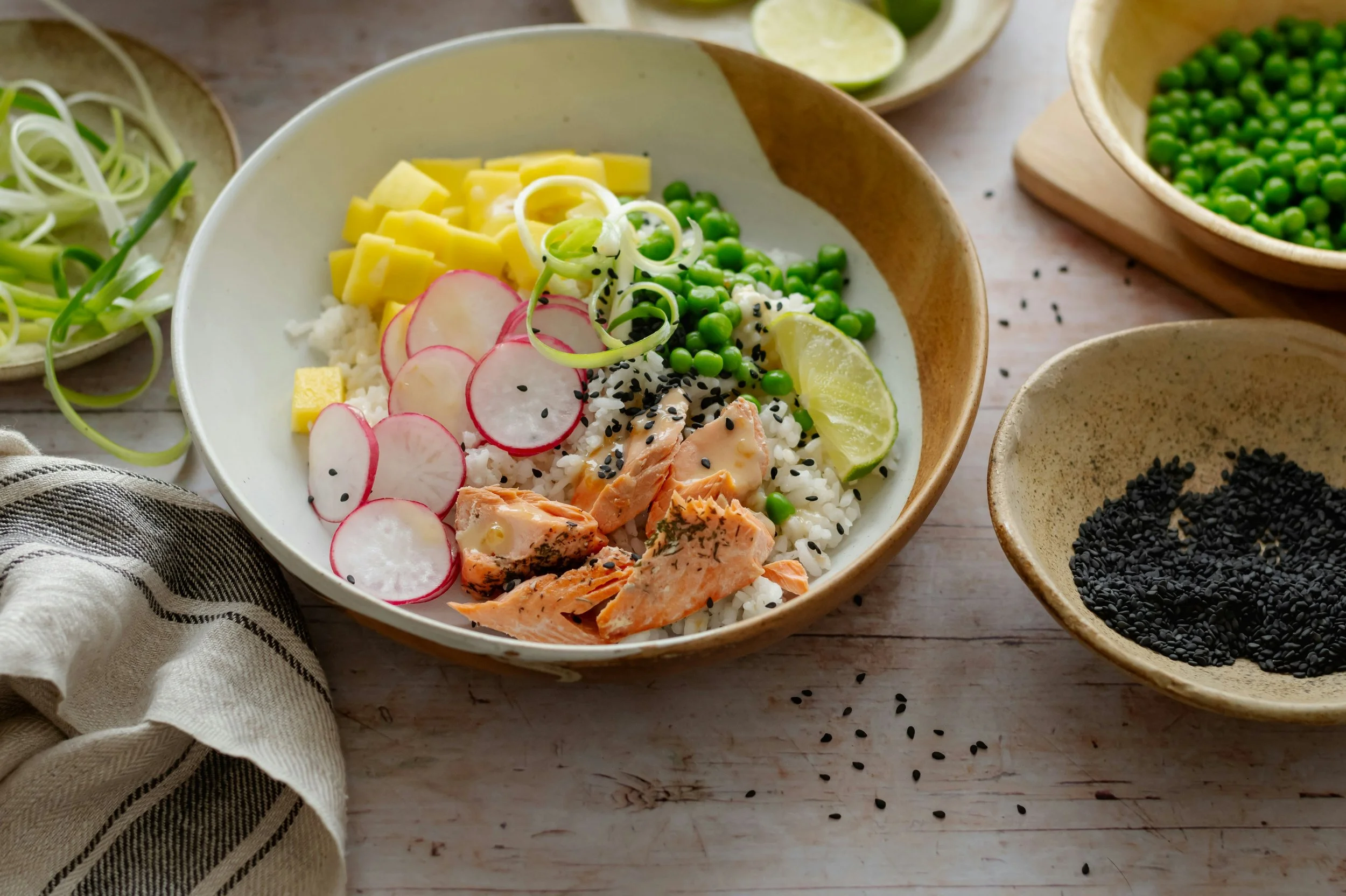Navigating Anxiety with Functional Nutrition
by Emma Dasco
Your body is always speaking to you, equipped with an innate capacity for healing. The challenge lies in understanding its language. In this blog, we will dive into interpreting the signals your body sends, clearing obstacles, and guiding you toward your most optimized mental state. Personally, and as a practitioner in the realm of holistic wellness, I've experienced and witnessed the power of functional nutrition changes in managing anxiety and restoring inner balance.
Functional Nutrition for Anxiety
While some traditional treatments offered temporary relief, it wasn't until I delved into the realm of functional nutrition that I began to experience true healing. Ninety Five Percent of serotonin is found in our gut lining. The connection between gut health and mental well-being is a fundamental pillar in addressing anxiety. When the delicate balance of the gut microbiome is disrupted, it reverberates throughout our entire being—impacting sleep, cognition, and emotional well-being. Research shows us the role of proper nutrition in supporting mental health, highlighting the profound impact of diet on our physiological and psychological states.
Balancing Blood Sugar
Think back to a time where you experienced a crash, maybe after eating a sweet treat or that 3pm afternoon slump. You may have felt more anxious, on edge, foggy, or irritable. This is a blood sugar crash. After continually riding the waves of blood sugar imbalance, this can affect our mental and physical health long term. In the intricate tapestry of holistic wellness, balancing blood sugar acts as a vital thread weaving together physical and mental well-being. The ebb and flow of blood sugar levels not only dictate our energy levels but also wield significant influence over our mood and cognitive function. I often counsel my clients to prioritize blood sugar balance as a non-negotiable aspect of their well-being journey—for it is, quite literally, a matter of life and vitality. By curbing fluctuations in blood sugar through prioritizing protein and mindful nutrition, we pave the way towards sustained energy, resilience, and as a result, emotional equilibrium.
Nurturing Your Gut-Brain Connection
Our journey towards holistic wellness extends beyond the realms of nutrition and lifestyle changes—it encompasses the intricate balance of the gut-brain axis. As the largest endocrine organ in the body, the gut acts as our “second brain” and has significant influence over our mental state—communicating with the brain via the vagus nerve, regulating hormones, and modulating inflammation.
Through the lens of functional medicine, we can harness the healing power of nutrition to nurture the gut microbiome—to cultivate a balanced ecosystem with vitality and resilience. By embracing probiotic-rich foods and nourishing our bodies with nutrient-dense options, we embark on a journey of restoration physically, mentally, and emotionally. In the sacred dance of holistic wellness, every choice becomes an intention—an intention for healing, for wholeness, for vibrant vitality. Together, let us embark on this journey—a journey towards balance, resilience, and the radiant glow of inner harmony.
Functional Nutrition Tips for Better Mental Health:
Apple Cider Vinegar - ACV has the remarkable ability to regulate blood sugar levels. ACV, with its acetic acid content, protects us against sudden spikes in blood sugar.
Try diluting 1–2 tablespoons of ACV in a large glass of water and drink it before meals or just before bed.
Some say that drinking ACV before eating starchy carbohydrates can slow the increase in blood sugar. Others say that ACV can help lower blood sugar by making the body more sensitive to insulin, helping muscles remove more sugar from the bloodstream, and slowing down digestion.
Prioritizing Protein - Proteins are made up of amino acids, which are the building blocks of neurotransmitters like serotonin and dopamine. Adequate protein intake ensures that your brain has the necessary materials to produce these mood-regulating chemicals. Nutrient dense protein sources include:
Organic Meats: Grass fed beef, turkey, chicken, lamb
Pasture raised eggs
Organic dairy products like yogurt and cheese or raw milk
Grass fed collagen
Bone broth
Your favorite protein powder
Aim for 20-30 grams of protein in every meal
Eat the protein first on your plate. Protein slows down the digestion and absorption of carbohydrates which lead to blood sugar spikes and crashes.
Fermented Foods - A healthy gut is a healthy brain! Gut health is closely linked to mental health. Fermented foods contain probiotics, which are beneficial bacteria that support a healthy gut microbiome. A balanced gut microbiome can help reduce anxiety and improve overall mood.
Consider adding:
Yogurt with live cultures
Kefir
Sauerkraut
Kimchi
Kombucha (low sugar)
Mindful Caffeine and Sugar consumption - While caffeine can provide a temporary energy boost, it can also increase anxiety and disrupt sleep when consumed in excess. Similarly, high sugar consumption can cause blood sugar spikes and crashes, leading to mood swings and heightened anxiety. Opt for natural and nutrient dense sweeteners like maple syrup or dates, and whole fruits instead.
Try to reduce your intake of caffeinated beverages like coffee or energy drinks after 12pm.
Add collagen powder or your protein powder and milk of choice to your coffee for more sustained energy and nutrient density.
Magnesium-Rich Foods - Magnesium is a mineral that plays a critical role in the body's stress response. Low levels of magnesium are extremely common and are linked to increased anxiety. To boost your magnesium intake, consider adding these foods to your diet:
Leafy greens like spinach and kale
Nuts and seeds, especially almonds and pumpkin seeds
Avocados
Bananas
Dark chocolate
Avoid “naked carbs” - naked carbs are carbohydrates that are consumed without any accompanying protein, fat, or fiber. This can cause a rapid spike in blood sugar levels because there is nothing to slow down the absorption of glucose into the bloodstream. When blood sugar levels spike quickly, they also tend to drop quickly, which can lead to feelings of fatigue, hunger, and sometimes irritability shortly after eating.
Add nuts, seeds, cheese, or yogurt to your carbs.
Include healthy fats like avocado, olive oil, or nut butter.
Include Fiber: Opt for whole foods like fruits, vegetables, and grains that are naturally high in fiber.
Balanced Snacks: Combine a carbohydrate source with a protein or fat source, such as apple slices with almond butter or whole grain toast with avocado and egg.

